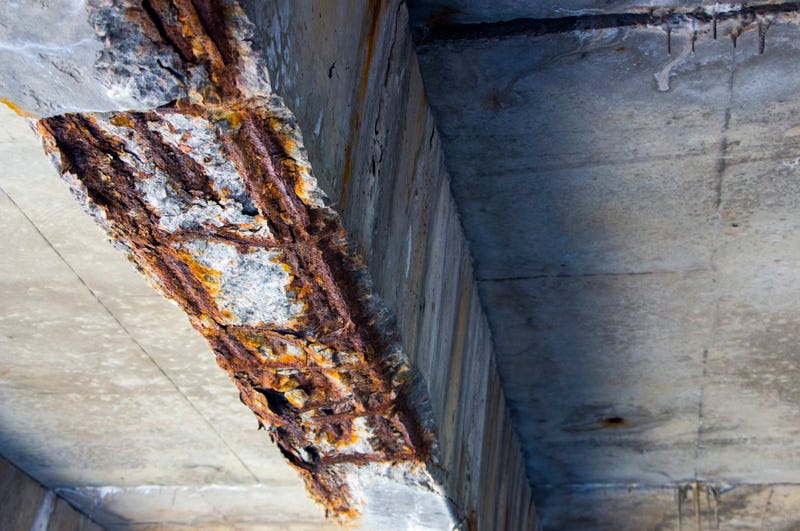
Imagine you’re driving to work, perhaps taking your kids to school. You make your way across a bridge you drive on every single day when suddenly the road gives way beneath you.
This exact scenario played out on January 28 in Pittsburgh’s Frick Park, and luckily the incident was free of fatalities, though it did cause numerous injuries.
Incidents like this are why the United States is making the biggest infrastructure investment in the nation’s roads and bridges in 50 years, with $560 billion over the next five years – a majority chunk of the $850 billion infrastructure bill signed by President Joe Biden in November – earmarked for the Department of Transportation to upgrade the roads Americans depend on for safe daily travel.
The American Road and Transportation Builders Association (ARTBA) noted in their 2022 Bridge Report earlier this year that 7% of the nation’s bridges are considered to be “structurally deficient,” and one out of every three bridges nationwide is in need of repair or replacement.
“Well, you get what you pay for,” Transportation Secretary Pete Buttigieg told CBS News. “And for pretty much as long as I've been alive, our country has been under-investing in public things, for a long time-- everybody here in Washington said, ‘We gotta do this,’ or, ‘We're gonna do this,’ It's finally happened But we-- we got a lotta time to make up for.”
Buttigieg said that’s why such a historic investment is crucial.
“When it comes to roads and bridges, we haven't invested at this level since the Eisenhower administration, since they built the interstate highway system in the first place,” Buttigieg said, emphasizing that there must be a push for repair with the money being investment, rather than instituting new builds.
“There's always a bias toward the shiny, new thing. But the truth is, as a country, we've gotta take care of what we've got,” Buttigieg said.
And in terms of who gets the money, the former Presidential candidate said the focus was to avoid politically-partisan distribution of funding.
“Look at what we're actually doing,” Buttigieg clarified. “So this last round of discretionary grants, for example, $1 billion that I had the final sign off on.
We actually went over the congressional requirement for how much goes to rural areas. Rural areas aren't known for supporting my political party. But they – they do have a lot of need. And so we're funding good projects there.”
The plan, while receiving bipartisan support in Congress, has received some pushback from some prominent state politicians after reports that some of the funding will be used to reinvigorate some of the nation’s low-income areas that were either damaged or divided by the creation of the interstate highway system.
“I heard some stuff, some weird stuff from the Secretary of Transportation trying to make this about social issues,” Florida Governor Ron DeSantis said in reference to these reports at a press conference.
Responding to DeSantis’s misgivings, Buttigieg told CBS, “If a road was built in such a way that it removed, destroyed, or divided a community of color, that's something we've gotta deal with.”
When asked if dealing with that issue means rerouting a major highway, Buttigieg clairifed.
“You might. If federal dollars were used to divide a neighborhood or a city, federal dollars should be used to reconnect it,” he said. “Now, that doesn't always mean the highway has to go completely. Maybe you gotta bridge over it or around it or introduce transit or different options. But the point is, transportation should always connect, never divide.”
LISTEN on the Audacy App
Sign Up and Follow Audacy
Facebook | Twitter | Instagram
